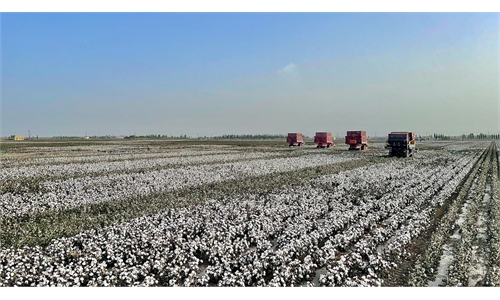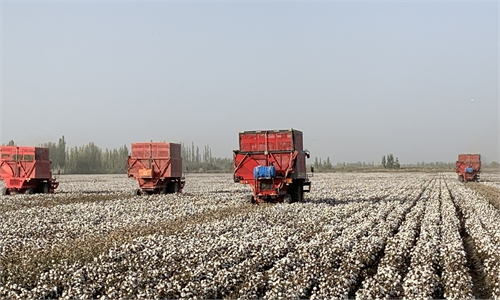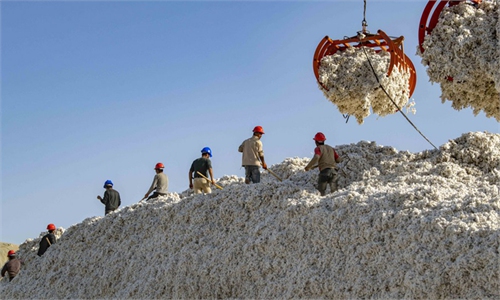News Analysis: Western attacks against Xinjiang built on ignorance
Cotton industry creates wealth and builds communities

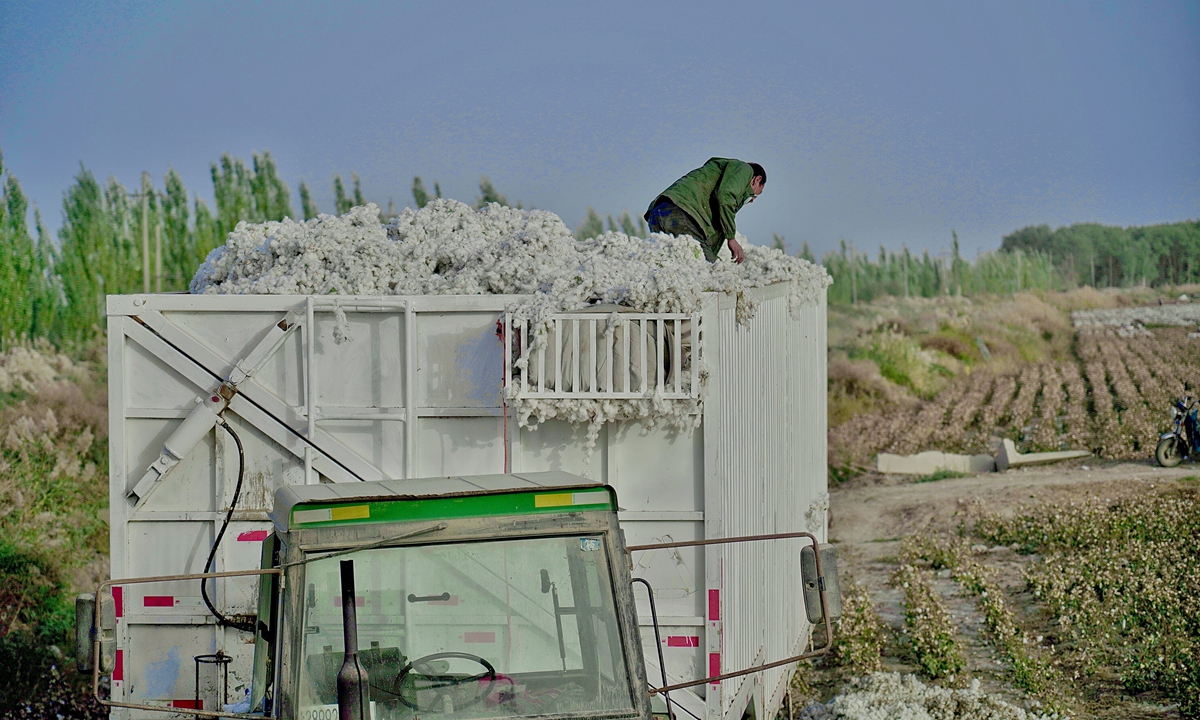
A view of a cotton farm in Shaya county, Northwest China's Xinjiang Uygur Autonomous Region on Friday Photo: Lin Luwen/GT
During my recent trip to Aksu, a cotton production base in Northwest China's Xinjiang Uygur Autonomous Region, I was made jaw drop all the time. Driving across the road, the autumn view of Xinjiang was splendid, but I had my mouth widely opened not because of that, rather for the wealth of local cotton farmers, which could be compared to the rolling hills in Xinjiang that far exceeded my expectation.The stereotypes of a farmer often go like this: feet firmly rooted in the soil and work all his lives to accumulate meager savings to feed his family. But when I visited the cotton fields, some of the cotton farmers I talked with - most of them are Uygur people as the minority group accounts for 80 percent of the local population - have been enjoying a wealthy and comfortable life, with annual incomes reaching from between 250,000 yuan ($38,950) to 300,000 yuan ($46,800).
In 2020, the average annual salary for employees in China's non-private companies and private firms was 97,379 yuan and 57,727 yuan, respectively. In first-tier cities like Beijing, the average annual income for workers at non-private entities stood at 145,766 yuan.
Comparing to the national average, I was surprised at that time. But I became shocked after I saw a 40-something Uygur man named Yimin Anayeti, driving a 2-million-yuan Lexus luxury sedan right past me and park his car next to a nearby cotton field.
He is also a cotton farmer, owning a 1,000-mu (66.67 hectares) field, in addition to 500 sheep and 300 cows, with annual income hitting over 3 million yuan. I had a chance to catch a ride with him back to his home, and again was impressed by his 150-square-meter luxuriously decorated apartment in downtown Shaya county in Xinjiang.
A decade ago, he was still living in a mud house in the countryside with his family. But now, Anayeti told me that he is living a dream life of "driving to work in the morning, laying on the sofa to watch TV at night and travelling across the country for leisure."
The cotton industry in Xinjiang, along with the promotion of massive plantations and mechanization in farming, has created countless rags-to-riches stories similar to that of Anayeti and become a key economic pillar underpinning Uygur people's pursuit of a better life.
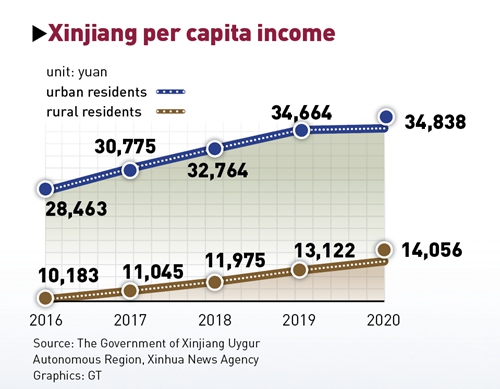
Wealth creation
I learned from local cotton farmers that most of them, with small-sized cotton fields, choose to rent their farmlands to agricultural firms under a centralized management model, with a price of 800 yuan per mu a year and then they're being hired again by the firm as a "field keeper" to manage manual operations from April to October - or from the seeding season to the harvesting season.
During the remaining part of the year, they also work at local downstream textile and clothing manufactures. That means they had secured three sources of income now, while the workloads had dwindled significantly thanks to automation of production lines and the mechanization in farming.
The rise of local cotton industry also generated more technical job opportunities. For example, a young Uygur man, who used to be a driver and started working as a plantation drone operator two years ago, told me that his daily income could hit as high as 3,000 yuan a day during peak season. With around six to seven peak periods across the year, the young man said he is "making money at the speed of a flying bird."
This is the on the ground reality in Xinjiang. The region has again recorded a bumper cotton harvest this season, and from the faces of every person in the industry I came across, I saw bright smiles.
It makes me wonder how could the Western agitators make up narratives of so-called forced labor in Xinjiang, without even visiting the region by themselves and respecting an ounce of the lived reality that the local cotton industry has made everyone better off?
Local farmers are strongly pushing back against these groundless accusations. Some become emotional and outrage when talking about how the Western-led boycotts against Xinjiang textile products have affected their industries. The sinister intentions of anti-China forces are being exposed: they want to cut away local farmers' source of wealth, ruin their lives, and jeopardize their rights to a better future.
These malicious attacks are doomed to fail, as one Uygur farmer told me, "it will only inspire us to work harder."

